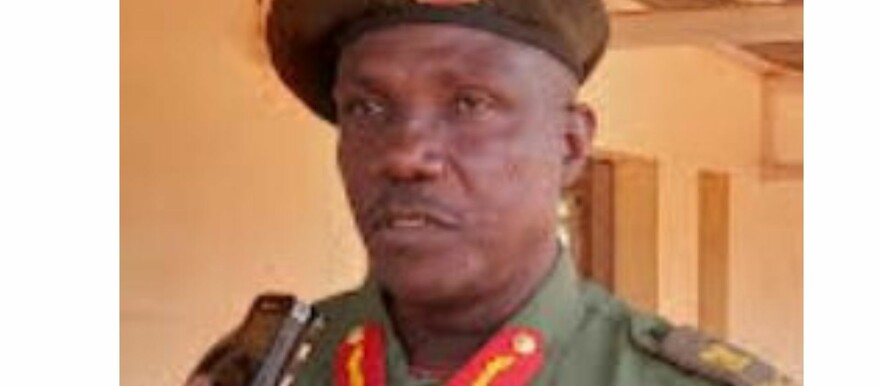The Sudan People’s Liberation Movement in Opposition’s (SPLA-IO) Sector 6 command based in Western Bahr el Ghazal State has raised concerns over delays by the national government to send the second phase of unified forces for training as stipulated in the revitalized peace agreement.
The SPLA-IO command also demanded that the unified forces from the armed opposition groups who graduated and deployed late last year be included on the army’s payroll to receive monthly pay like their SSPDF counterparts.
Speaking to Radio Tamazuj on Monday, the SPLA-IO area commander in Western Bahr el Ghazal State, Major General Peter Ngoli, said the government should finalize the pending parts of the security arrangements to ensure that the Necessary Unified Forces (NUF) are deployed to protect the country.
“What I am saying is that South Sudan’s borders are open and this requires forces to be deployed for the protection of the civilians and the country,” he said. “I am calling upon the national government to issue orders to the top military leadership and the rest of the forces so that they deploy to safeguard our borders and to stop weapons and wrong elements from entering from Sudan which is at war.
“If our borderline with of Sudan remains unprotected, illegal weapons will continue to flow into South Sudan and this will create insecurity in the country and particularly in Western Bahr el Ghazal State which has a long border with Sudan,” Gen. Ngoli added.
He also underscored the importance of catering to the welfare of the unified forces and all armed forces in the country.
“If we talk about the welfare of the army, they have special needs that need to be looked into. For example, some of the unified forces from the SSPDF are receiving salaries. At the same time, their counterparts from the opposition groups who were retrained and graduated are not being paid and this is causing a problem,” he warned. “We demand that the unified forces whose purpose is to defend the country be paid equally and simultaneously so that they can feed their families and take their children to school.”
Reacting to the demands of the SPLA-IO commander, Stephen Robo Musa, the coordinator of the Community Empowerment for Progress Organization (CEPO) in Western Bahr el Ghazal State, emphasized the importance of the comprehensive implementation of the security arrangements as stipulated in the peace agreement.
He said there has to be provision of security and safety for displaced people and refugees to return to their homes.
“Most of the places that these people are returning to do not have police for protection, they are just returning because of the presence of local authorities on the ground,” he said. “Secondly, Western Bahr el Ghazal State borders other countries and it is important to have sufficient forces to protect the borders.”
Robo pointed out that the country is heading for elections and there is a need for well-trained unified forces to protect the polls.
“The election processes have now started and for candidates to start their campaign, there is a need for a presence of trained unified forces on the ground who can also carry out disarmament of illegal weapons without discrimination,” he added.




